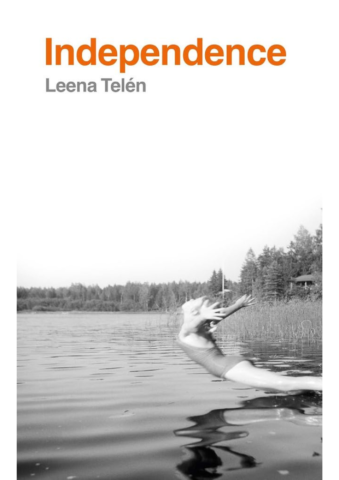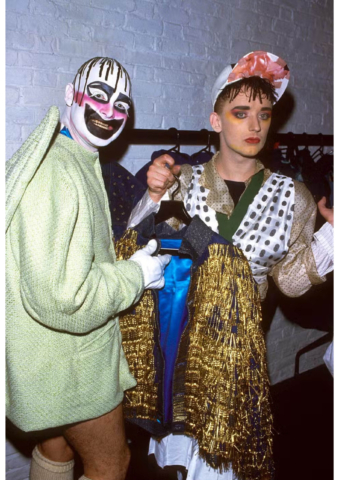Power; Granta and the Power of the Story
By George Kowalik
The power of literature is in ubiquity, universality. Fiction is a gift to the world, packaged and sent by one but received by as many as possible. This is the case for the thousand-page novel, but also the hundred-word short story. As the cliché goes: it’s quality, not quantity.
There are fewer homes for short fiction as reputable as Granta magazine. It’s one of the world’s most renown literary periodicals, whose each issue is organised to a theme (the previous three have been “Generic Love Story”, “Ghosts” and “The Politics of Feeling”). But it doesn’t limit itself to short stories, having published poetry, memoirs, investigative journalism and photography over the decades. Founded in 1889 by students at Cambridge University, the early magazine was responsible for publishing the juvenilia of writers that later became a huge success. The list is long and prestigious: William Empson, Michael Frayn, Ted Hughes, A.A. Milne, Sylvia Plath, John Simpson…
 For their Spring 2019 issue, Granta have released a special 40th anniversary edition
For their Spring 2019 issue, Granta have released a special 40th anniversary edition
It was in 1979 that Bill Buford transformed Granta from a student publication into the literary quarterly it remains to this day. Buford was editor for sixteen years and was succeeded by Ian Jack (who remained for twelve), followed by Jason Cowley (who redesigned the magazine and launched a new website, but only stayed for one). Alex Clark took over from him, becoming the first female editor in the magazine’s history, and was succeeded by John Freeman in 2009. Since 2005, Granta has been owned by Swedish philanthropist, anthropologist and publisher Sigrid Rausing.
Historically, the magazine has maintained an acute awareness of young breakthrough writers, often helping provide the platform necessary for them to be able to do just that. In 1983, the magazine’s seventh issue published a list of twenty young British novelists to watch out for: it included 2017 Nobel Prize winner Kazuo Ishiguro (The Remains of the Day; Never Let Me Go), Booker Prize winner Salman Rushdie (Midnight’s Children; The Satanic Verses) and Ian McEwan (Amsterdam; Atonement), amongst others.
This became a tradition each decade, and the British lists went on to include the likes of Will Self (1993) and Zadie Smith (2003 and 2013). In 1996, the magazine replicated the tradition for American writers – notably, the inaugural list included National Book Award winner Jonathan Franzen (The Corrections; Freedom) and 2007’s included Jonathan Safran Foer (Everything Is Illuminated; Extremely Loud & Incredibly Close). 2010 saw Granta introduce a “Best of Young Spanish Language Novelists” list, 2012 saw one brought in for Brazilian writers, and 2016 one for Japanese. The magazine is most famous for this: bringing the work of international writers to a British readership.
Granta’s self-proclaimed mission statement is to help circulate “the power and urgency of the story and its supreme ability to describe, illuminate and make real”. It’s done this for 130 years. For the forty years since its 1979 relaunch, it’s done this as a dominating player in the global literary market as well as British academic circles. The anniversary highlights just how far Granta has come, whilst giving a clear indication of how far it will go in another forty years.
To mark the anniversary, the British Library has acquired the magazine’s archive, comprising around 300 hundred boxes of material. By 2021, it will be available to view in the British Library Reading Rooms – featuring letters and papers from authors such as Margaret Atwood, J.G. Ballard, Angela Carter and Kazuo Ishiguro, to name a few.
 Ishiguro’s May 1980 letter to Granta, asking for his short story ‘Getting Poisoned’ to be considered
Ishiguro’s May 1980 letter to Granta, asking for his short story ‘Getting Poisoned’ to be considered
 Kingsley Amis’ letter (December 1979) is another featured in the archive. Amis writes “I am afraid you are almost certain to be unable to afford me”
Kingsley Amis’ letter (December 1979) is another featured in the archive. Amis writes “I am afraid you are almost certain to be unable to afford me”
To celebrate the acquisition, Scottish writer A.L. Kennedy will be in conversation with Granta Deputy Editor Rosalind Porter at the British Library on Monday 22nd July. The talk, titled “Literature in Crisis? 40 Years of Granta”, will be chaired by Samira Ahmed.
Sigrid Rausing has said that she is “delighted” with the anniversary plans: “the Granta archive has found a permanent home at the British Library, where it will be preserved and finally made available to scholars and lovers of literature alike… the material generated from forty years of publishing Granta does so much more than simply showcase the history of our beloved literary quarterly.”
The move reflects the inimitable reputation of Granta, and its position at the forefront of the literary world – which it will remain in for many more years to come.
Granta’s site and different issues can be found here
Tickets to “Literature in Crisis? 40 Years of Granta” can be found here
Image credits: The British Library





